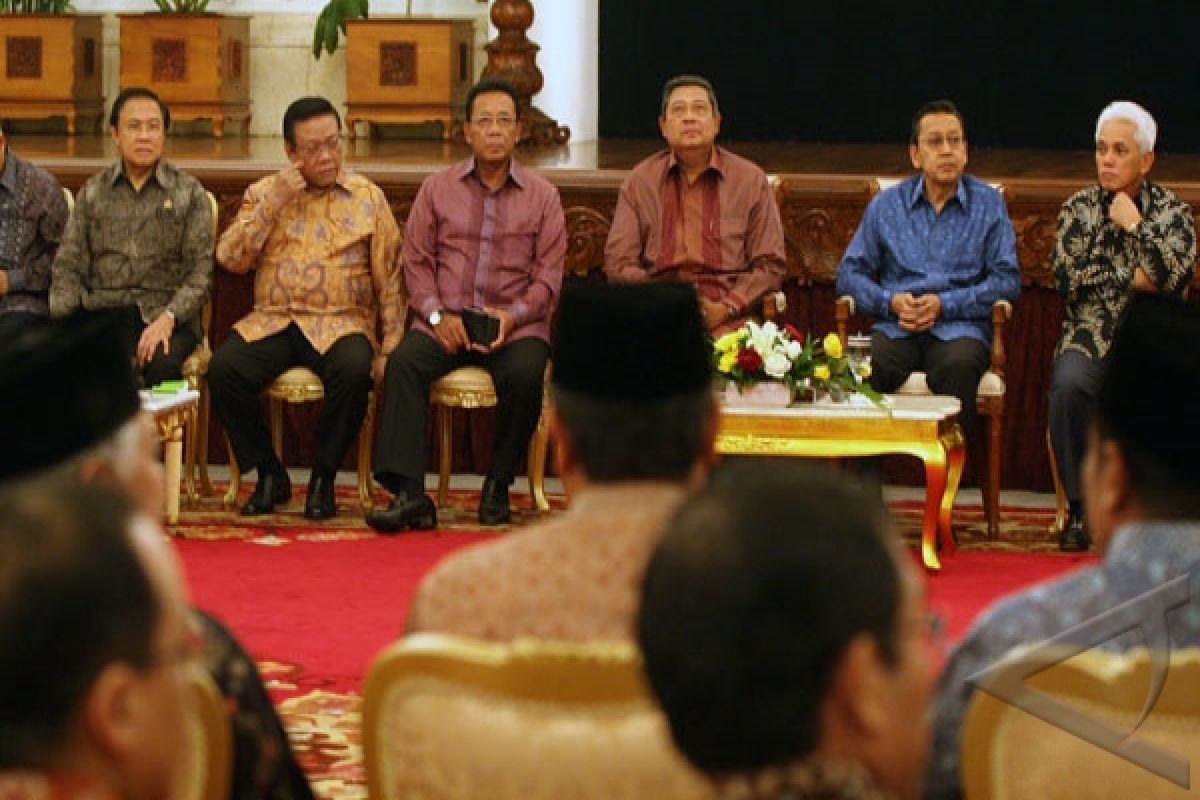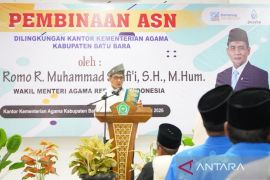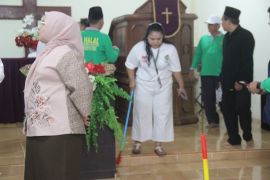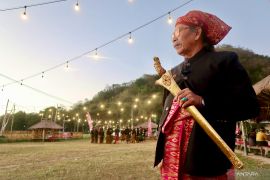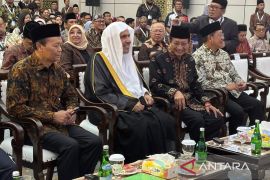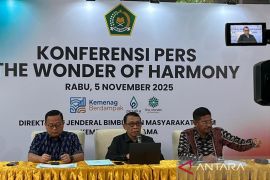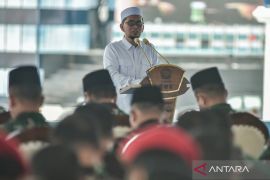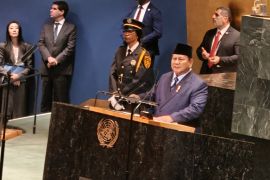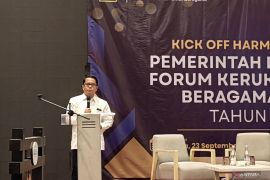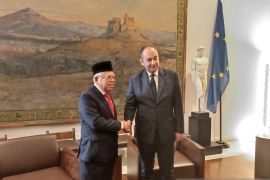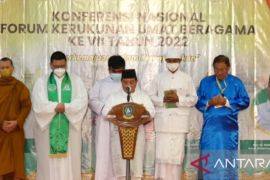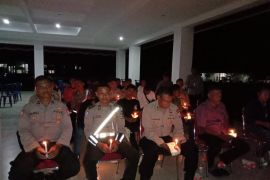"The statement of the interfaith leaders is a serious thing that needs to be followed up because it has implications that could influence the president`s integrity,"Jakarta (ANTARA News) - Failing to touch on the substance of their criticism against the government during a four-hour meeting with President Susilo Bambang Yudhoyono on Monday night, interfaith leaders vowed to demand for continued dialogs with the government.
The interfaith leaders have accused the government of making public lies as what it has stated on certain fields were against realities. This prompted the president to have a dialog on Monday night.
However, the meeting was said to have failed in touching on the substance of the religious leaders criticism.
Observers said that the criticism that reflected the interfaith declining trust toward the government and could affect its image is an expression of concern over the people`s poor prosperity. It is a call for the government to introspect.
"It reflects that a crisis of people`s confidence toward the government is taking place. The government should soon find a solution," Executive Director of Reform Institute Yudi Latif said in a meeting of 100 movement activists in Jakarta on Monday.
He said the crisis of confidence happened because the people viewed that the image-building politics the government was implementing was against realities. Yudi was reacting to a statement made by religious leaders last week who declared 2011 as the year of fighting against lies.
Therefore, with the interfaith leaders` statements on public lies, the government needs to introspect. "I see the interfaith leaders`s statements as a call on the government to introspect. There is no hidden agenda in it," Slamet Effendi Yusuf, Chairman of the Interfaith Affairs of the Indonesian Ulemas Council (MUI), said.
He said what was expressed by religious leaders was a call on the people; the government in particular; to introspect and to carry out self correction, as otherwise it would impact the government`s image itself.
This was admitted by Daniel Sparinga, the president`s special staff for political affairs, who said the interfaith leaders` opinion that the government had committed public lies could have impacts on the image being developed by President Susilo Bambang Yudhoyono.
"The statement of the interfaith leaders is a serious thing that needs to be followed up because it has implications that could influence the president`s integrity," Daniel Sparingga told a discussion on public lies organized in response to the interfaith leaders criticism.
Last week, nine interfaith leaders gathered at the office of Muhammadiyah, Indonesia`s second largest Muslim organization, to declare 2011 as a year of fighting against public lies.
The religious leaders attending the gathering included Buddhist Monk Pannyavaro Mahathera, Andreas Yewangoe (the chief of the Indonesian Communion of Churches), Muhammadiyah Chairman Din Syamsuddin, Catholic priest Franz Magnis Suseno and founder of Maarif Institute, Ahmad Syafii Maarif.
The religious leaders believed that the government had made public lies in several fields, including the fields of economy, enforcement of human rights, the Lapindo mudflow case, religious freedom, protection of migrant workers and the fight against corruption.
"The government should stop all forms of lies. The laws are no longer observed in developing the nation and state," Ahmad Syafii Maarif said.
According to the interfaith leader group`s Spokesman Shalahuddin Wahid, the government should immediately end its deviations from the 1945 Constitution by creating justice and national prosperity.
"Today so much violence is committed in the name of religion, freedom of speech and press freedom are still being ignored by the government and human rights violations with impunity are still continuing," Shalahuddin Wahid said.
He said the government`s policies had indeed led to economic growth of up to 5.8 percent but in reality many pockets of poverty still existed in different regions in the country.
In the amended 1945 Constitution it is stated that Indonesia is a law-based country but the fact is it is not. He said the government had also not paid attention to victims of serious human rights violations and had failed to protect migrant workers treated badly in various other countries.
"The government has not been able to protect Indonesian citizens," he said.
Virtually, criticism against the government by religious leaders is basically an expression of concern over the people`s poor prosperity. According to Paskalis Kossay, a member of the Golkar Party Faction in the House of Representatives (DPR), the interfaith leaders were very concerned over the prosperity of the people.
"I think the meeting between President Yudhoyono and the interfaith leaders this evening (Monday evening, Jan 17) will be meaningless if their demand for improvement of the people`s welfare is not implemented in the field," he said.
He said that the meeting was also less significant because interfaith leaders making the statement did not completely attend the meeting between the president and the religious leaders.
Shalahuddin Wahid and Ahmad Syafii Maarif were reluctant attend the meeting.
Those attending the meeting with the president Monday evening included Andreas Yewangoe, the chief of the Indonesian Communion of Churches, Catholic priest Franz Magnis Suseno, the associate chairman of the Indonesian Council of Ulema, Ma`ruf Amin, the general chairperson of the Buddhist Association Hartarti Murdaya and Confucian leader Budi Ranoewibowo.
After attending the dialog with the president, Andreas Yewangoe said the meeting which lasted for four hours had not yet touched on the substance of their criticism. Therefore, the interfaith leaders are determined to continue dialogs with the government as a response to their criticism.
"We will continue to ask for dialogs," Yewangoe said.
(T.A014/H-NG/F001/P003)
Reporter: Andi Abdussalam
Editor: Priyambodo RH
Copyright © ANTARA 2011
